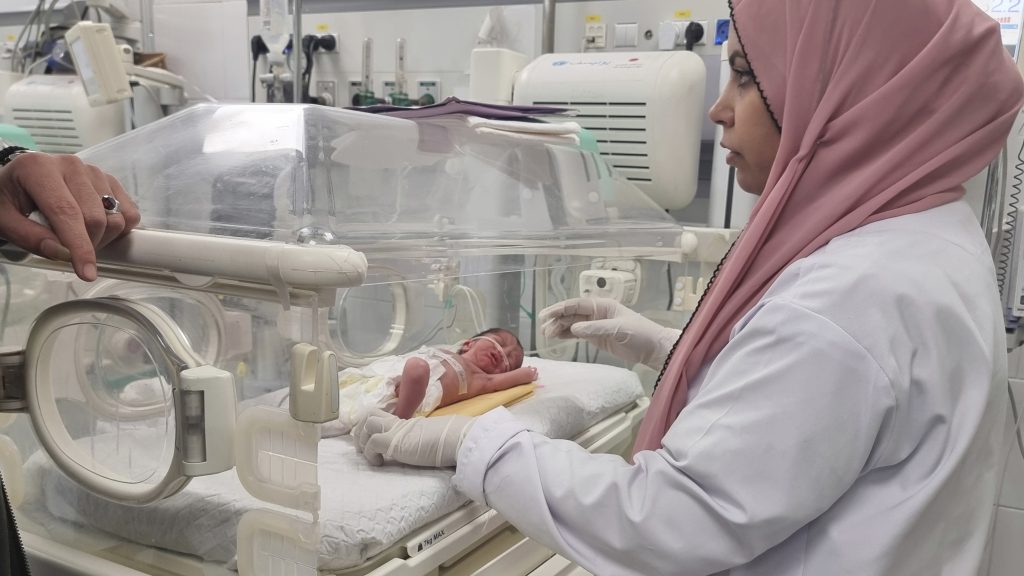Created Equal: How the war in Gaza is complicating pregnancy
Created Equal April 22, 2024“Reveal” podcast hosts joined “Created Equal” to discuss Lubna Rayyes’ journey to deliver her child safely and how the war destabilized healthcare in Gaza.

A Palestinian baby girl, Sabreen Jouda, who was delivered prematurely after her mother was killed in an Israeli strike along with her husband and daughter, lies in an incubator in the Emirati hospital in Rafah, southern Gaza Strip. Sunday, April 21, 2024.
We have heard a lot about the war in Gaza — about the politics and positioning on both sides, and the assertion by Israel that the destruction of the Palestinian territory is necessary for its security.
On this episode of Created Equal, we hear about what life has been like for some of the most vulnerable people in Gaza.
Gabrielle Berbey and Salman Ahad Khan reported the story of Lubna Rayyes — who was pregnant when the war in Gaza began — for the Reveal podcast. They joined the show to discuss Rayyes’ journey to deliver her child safely and how the war destabilized healthcare in Gaza.
Subscribe to Created Equal on Apple Podcasts, Spotify, Google Podcasts, NPR.org or wherever you get your podcasts.
Guests:
Salman Ahad Khan is a reporter and audio journalist who reported Lubna Rayyes’ story for the Reveal podcast. Khan stated the medical system in Gaza was intact before the war. “Before the war this would not have been a difficult pregnancy,” he said.
Gabrielle Berbey is a reporter and audio journalist who followed Lubna Rayyes as she attempted to flee Gaza. Rayyes’ sister was able to evacuate to Canada because she has citizenship there, but Berbey reported Lubna had to go through a complicated new Canadian evacuation program.
“The program had a list of requirements that Gazans would have to provide to apply like biometric data, a record of all of the passports they have held, employment history since the age of sixteen — which was just a completely an unrealistic bar for many Gazans to meet because so many of them had to evacuate their homes,” Berbey explained.
Related: The war in Gaza’s impact on the American Jewish community
Trusted, accurate, up-to-date.
WDET strives to make our journalism accessible to everyone. As a public media institution, we maintain our journalistic integrity through independent support from readers like you. If you value WDET as your source of news, music and conversation, please make a gift today.
